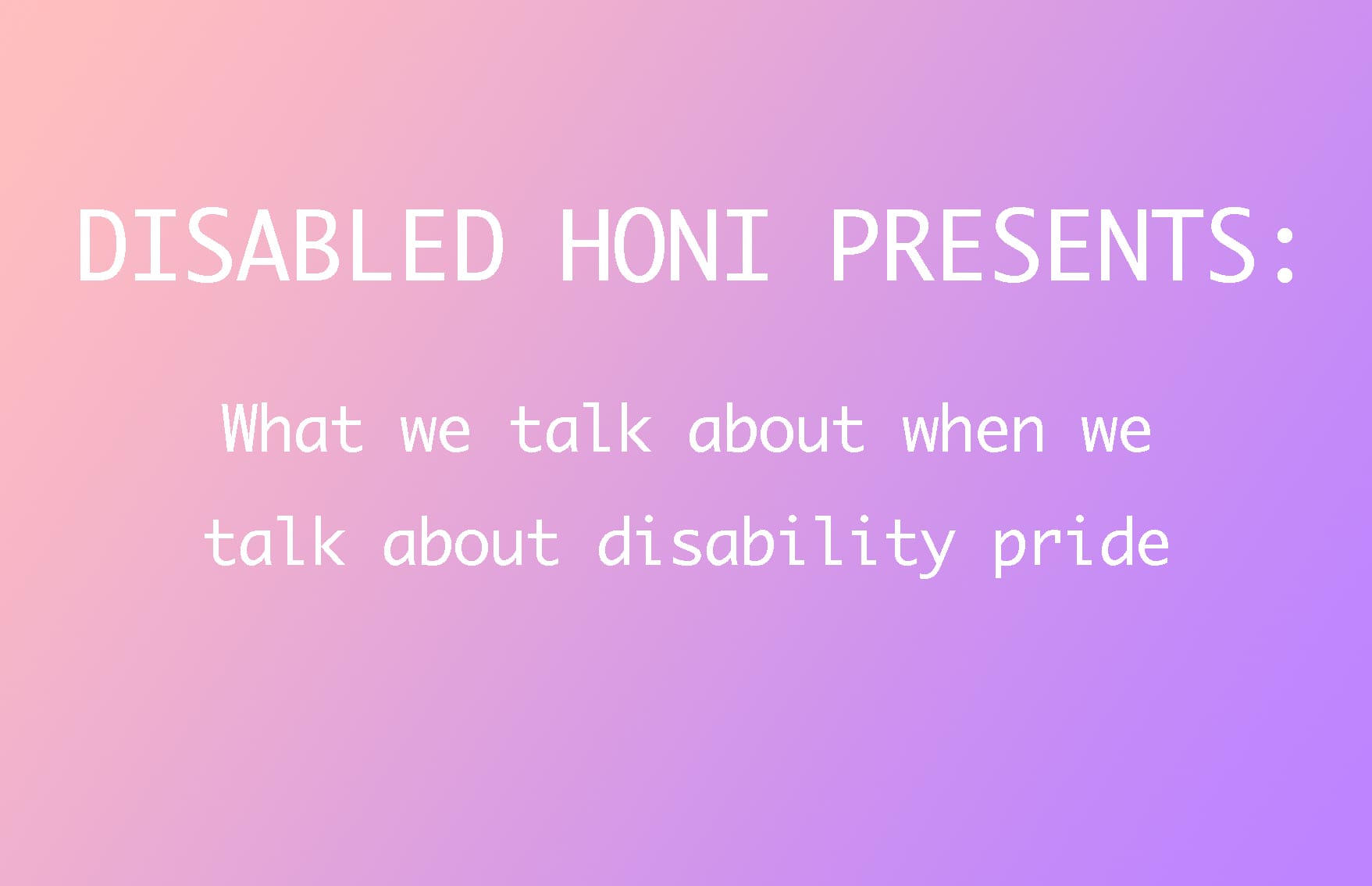When I talk about disability pride people are confused and sometimes a little indignant. Isn’t that disrespecting or glamorising a painful reality? Why would you be proud of that?
Well, why would I be proud of this wonky body? It hurts to live in. I am in pain every day. I am slow to do some things, and incapable of doing other things. There are a truly ridiculous number of buildings that I can’t get into. I am steadily becoming more misanthropic than I would like to be, because apparently when abled people meet a disabled person all social niceties and conventions of basic decency fly out the window.
Most of what I hate about being disabled is the fault of living in an ableist world. It is not an accident that I can’t get into most buildings; they were built only for certain bodies. It’s not my wonky body’s fault that strangers refuse services because I am disabled, grab my wheelchair and push me around without my consent, ask me intrusive questions, or insist on talking to the nearest biped instead of me; it’s the fault of a society that isolates and marginalises disabled people and teaches fear and pity to abled people. It is not my body’s fault that accessing adequate pain treatment in this country is nightmarishly difficult. It is not my body’s fault that disabled people are disproportionately unemployed, uneducated, and underrepresented; nor is it my body’s fault that we are more likely to live near or below the poverty line, more likely to experience housing crisis, and more likely to experience sexual violence.
For me, disability pride isn’t about pretending that there is no suffering involved in my life. It’s about rejecting shame. I don’t have to love everything about my body to feel that I shouldn’t be required to hate it.
Being a wheelchair user in a society built by and for bipeds definitely sucks, but there is a great deal about the physical reality of being a wheelchair user that I genuinely love. Zooming down Science Road really fast is the absolute highlight of my day. The structural oppression is widespread and overwhelming, but disability pride gives me the strength to fight back and make good change. Dehumanising interactions with abled people are depressing, but there are abled people in my life who get it and who I can commiserate and laugh off the bullshit with. And I have found so much happiness and love amongst other disabled people.
Pride means acknowledging that I am part of a huge and wonderful marginalised community, that is endlessly diverse and found in every corner of the planet. I am proud of my community and of disability culture. I am proud of disability literature and poetry. I am proud of disability activists and the hard work they put into fighting for the rights of people like me.
Pride means reclaiming the possibility of joy over my body, my life, and the way I move through the world. There is more to my life than pain. I am a whole and complete human living a full life, and it’s a life that I’m proud and happy to be living.





